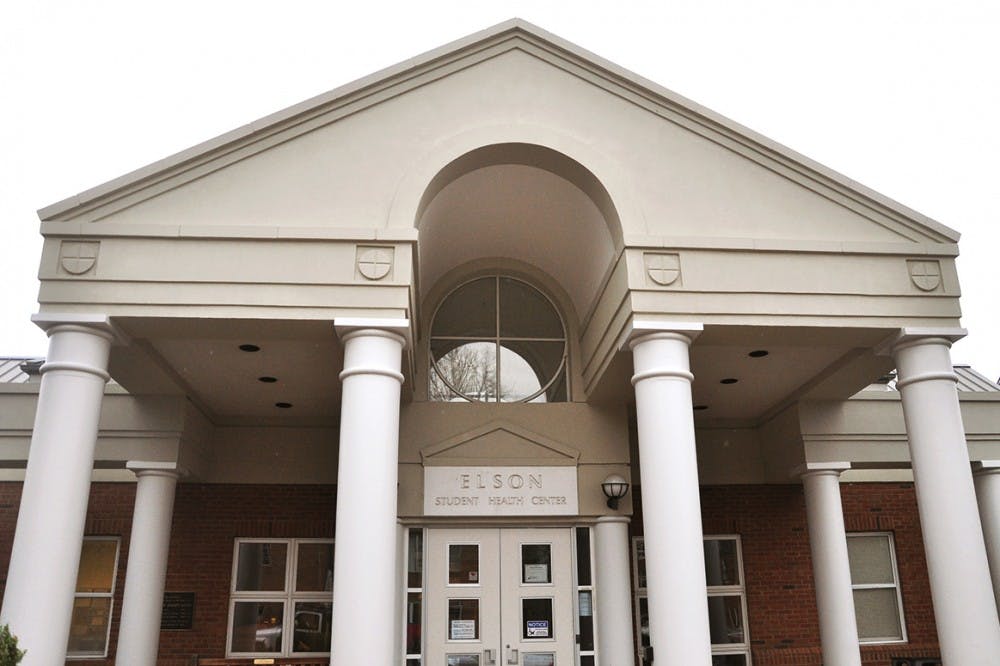The Office of Health Promotion is in the process of hiring a second health promotion specialist to address issues of sexual violence and hazing on Grounds. While the University has one other health promotion specialist at the moment — Program Coordinator of Prevention Rachel Kiliany — this new position is unique in that it will work specifically with men.
According to Kiliany, this is an opportunity to expand the work she is already doing on violence prevention by bringing in male perspectives and encouraging men to become a larger part of the conversation around sexual assault.
“Right now we are struggling, not just at U.Va. but nationally,” Kiliany said. “For a lot of folks it still feels like a women's issue, even though it's a human issue and it's also a human solution.”
The new employee will be expected to develop new programs targeted at all-male groups such as athletics teams and fraternities, support prevention groups like One in Four and serve as a resource for male survivors and allies. However, Kiliany notes that the specific tasks of the specialist have been left intentionally vague. Citing public health techniques that encourage community participation in the development of interventions, Kiliany says that the specialist will work with stakeholders to learn what their most pressing concerns are and brainstorm possible solutions.
Alexa Iandrola, Batten student and president of the sexual assault education and advocacy group One Less, is “tremendously thankful” that the administration has actively encouraged student participation in the creation of this position and the recruitment process. Members of various student organizations, including One Less and One in Four, have had the opportunity to meet with prospective candidates in order to ask them questions and hear simulated presentations.
Claire Raymond — a lecturer in the art history and sociology departments who formerly taught classes on gender and violence in the Department of Women, Gender and Sexuality — is also hopeful about the new position. According to Raymond, continuing to teach women how to avoid violence is ineffective and nonsensical. Instead, she thinks programs such as this one, that addresses the experiences of young men and can help them think through issues of masculinity will be much more impactful.
Raymond noted that while violence is not inherent to masculinity, culturally constructed codes of masculinity can promulgate violence. She gave as examples competitiveness, never showing weakness and viewing women as separate and inferior.
This fall Raymond published an article in Feminist Studies with her co-author Assoc. Prof. Sarah Corse about the experiences of female sexual assault survivors at U.Va. The piece concluded that many aspects of the University are characterized by “patterns of masculine domination.” As one survivor put it, “this is still very much a school for boys.”
There have been an array of studies evaluating the efficacy of male-oriented sexual assault prevention programs. While some have found statistically significant evidence that these interventions can reduce rates of sexual violence, most report mixed results and the need for more robust data.
Other schools that have tried to create programs targeting men and masculinity have faced some push-back. After receiving criticism from several conservative media outlets, the University of Texas at Austin shelved their MasculinUT program for five months. The program — which according to UT Austin's website is intended to “help reduce sexual assault and interpersonal violence, with strategies specifically tailored to men” — is back but has been moved out of the Counseling and Mental Health Center and to the Office of the Dean of Students.
Kiliany says that no one at the University has approached her with concerns about the position. Hiring a second health promotion specialist will double the number of staff members working on violence prevention and significantly increase how many projects they are able to take on.
Currently, Kiliany runs Green Dot, Hoos Got Your Back and Hoos Against Hazing. She envisions one day being able to create a system like the one in place for Peer Health Educators, who have a dedicated staff member that teaches a class for PHEs and acts as a liaison between the administration and the student-educators. She said she thinks students working in violence prevention should also be receiving school credit for the peer education and outreach that they are doing.
This is just one of the first steps in the general expansion of Student Health and the departments within it. When the new Student Health building is finished, the Office of Health Promotion expects to quadruple its staff, from five to around 20.
Raymond is encouraged by this new position’s potential to create change.
“Hopefully it’s a long term process,” Raymond said. “Hopefully it’s something that stays with the University for 100 years.”






